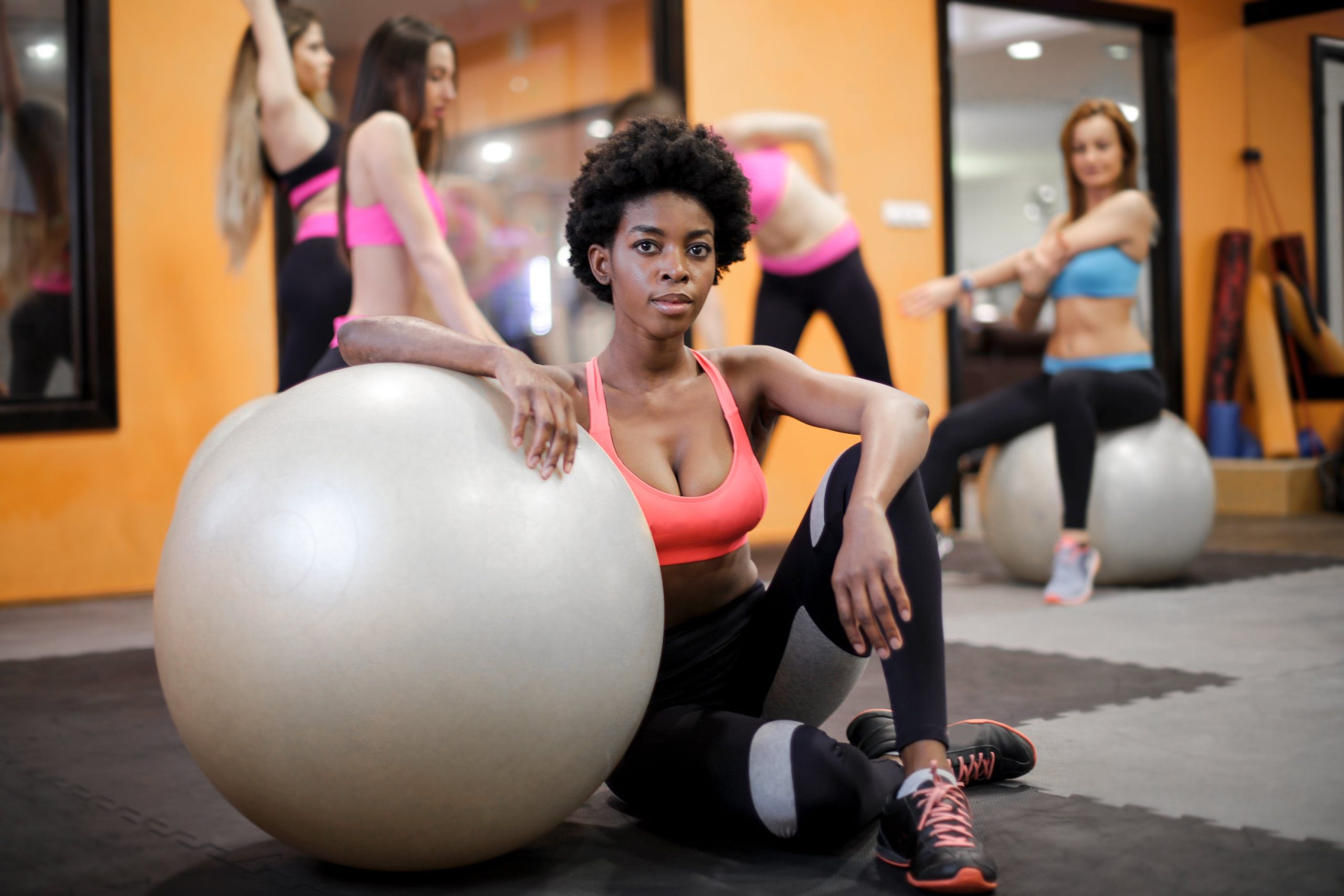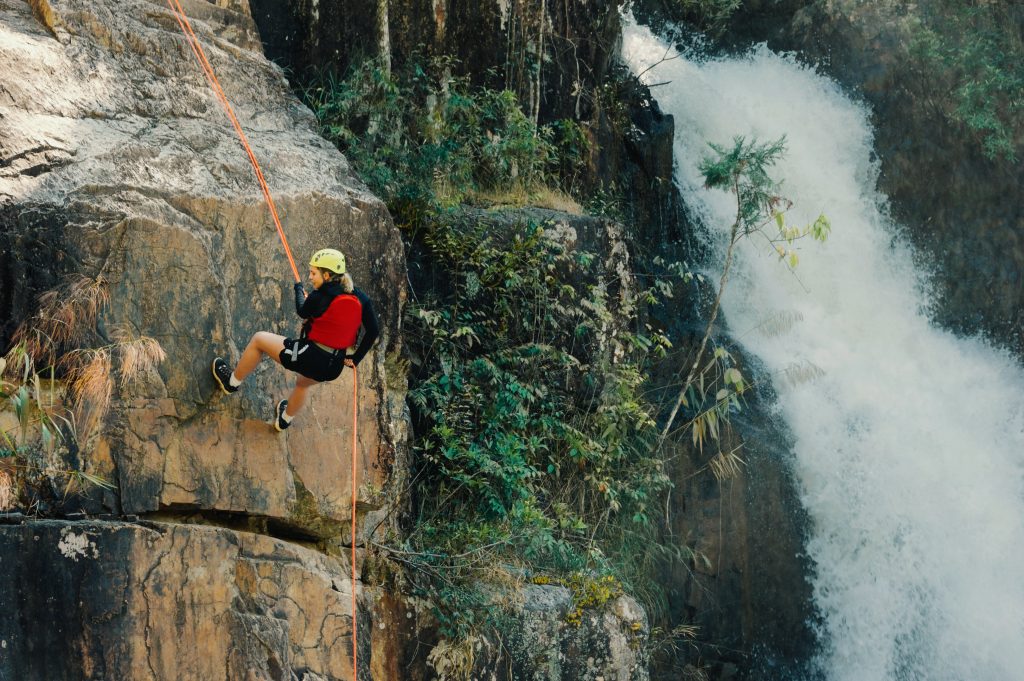The Ultimate Guide to Extraverted Sensing (Se)
If you’re curious about Extraverted Sensing, also known as Se, this is the guide for you. We’ll explore everything related to this cognitive function, including how it manifests, real-life examples, and famous people who primarily use Extraverted Sensing.

If you’re curious about Extraverted Sensing, also known as Se, this is the guide for you. We’ll explore everything related to this cognitive function, including how it manifests, real-life examples, and famous people who primarily use Extraverted Sensing.
So whether you’re new to cognitive functions or just want to delve deep into Extraverted Sensing, keep reading.
What is Extraverted Sensing?
Extraverted Sensing is one of eight cognitive functions, which are modes of processing information and making decisions based on our personality types. They form the basis of how we think and draw conclusions.
Extraverted Sensing is one of the processes that help us understand the world around us. It’s about experiencing and perceiving the external world in the now and it involves taking in information using our five senses.
In addition, Extraverted Sensing is all about tangible information. It’s associated with action, movement, and the “here and now”. Those who use it as a primary cognitive function tend to be very aware of their surroundings. They usually have the ability to notice even very subtle changes in their environment.
If Extraverted Sensing was a question, it would be: what am I physically experiencing right now?
Defining ‘Extraverted Sensors’

In this post, when we talk about ‘Extraverted Sensors,’ we are primarily talking about personality types who use Extraverted Sensing as their dominant cognitive function. So, these would be ESFPs and ESTPs.
Within the term ‘Extraverted Sensors,’ we also include personality types who use Extraverted Sensing as their auxiliary function, which are ISFPs and ISTPs. But they will relate to the content of this post to a lesser extent.
How Extraverted Sensing manifests
Let’s take a look at how developed Extraverted Sensing manifests.
Summary
One of the most defining characteristics of Extraverted Sensors is that they have a knack for paying attention to what’s around them. This is evident in the way they notice small things about people and their environment. They place high importance on verifiable facts and information that is proven.
Extraverted Sensors are often described as spontaneous and fun-loving. This is partly because they are confident they can respond in the moment. One characteristic that Extraverted Sensors are known for is enjoying new real-world experiences and sensory pleasures. In addition, they are usually very physical people and they often enjoy adrenaline-filled activities such as skydiving or motorbiking. More often than not, Extraverted Sensors are talented athletes.
Problem-solving
Extraverted Sensors like to be hands-on. They often prefer practical tasks that allow them to use their senses and move around.
When it comes to solving problems, they are able to find workable solutions by assessing the realities of the situation and taking action. Additionally, they have quick minds and tend to be good in a crisis because they are able to think on their feet.
Extraverted Sensors may struggle with more theoretical or abstract concepts that require them to sit still for long periods of time. As a result, they prefer to solve hands-on problems in the real world rather than theoretical questions.

Communication
In terms of communication, Extraverted Sensors are literal and direct. They tend to speak in a concrete and down-to-earth manner without much embellishment. In addition, they often use body language to emphasize their points.
Extraverted Sensors are also known for being good at reading people. They often have a strong sense of intuition about what others are feeling. This allows them to be very effective in social situations. However, they may sometimes come across as insensitive because they can be direct and blunt in their communication.
Memory
Extraverted Sensors have incredible memories of sensory details. They often remember exactly how things felt, smelled, tasted, etc. For example, when asked about a restaurant, they might remember a specific item on a menu that they enjoyed rather than the reason they were there.
In addition, Extraverted Sensors have highly accurate memories because they recall precise sensory information rather than the overall gist of a situation. It’s not unusual for them to have photographic memories. Ultimately, they remember how something actually was as opposed to their subjective impression of it.
Real-life examples of Extraverted Sensing in action
Here are some real-life examples of Extraverted Sensing so you can think about it in a practical and relatable way.
- Watching a sunset and observing the incredible colors as well as the sound of the waves.
- Noticing the full flavors and texture of the food while eating lunch.
- Hugging someone and observing how warm they feel.
Weak Extraverted Sensing

Weak Extraverted Sensing manifests as a lack of awareness of the physical world and how you fit into it.
People who have inferior Extraverted Sensing might trip up or stub their toes more often than most people. They find steep or icy paths a nightmare. In addition, they have a tendency to get completely wrapped up in their thoughts and even see the physical world as dangerous or unsafe.
These are just a few examples, but hopefully, they give you a flavor of what weak Extraverted Sensing looks like.
Strengths of Extraverted Sensors
Here are some of the strengths associated with Extraverted Sensors:
- Practical: They are able to find workable solutions by assessing the realities of the situation and taking action.
- Adventurous: They enjoy experiencing new things and often seek out sensory pleasures.
- Observant: They have a keen sense of observation and notice small details that others may miss.
- Adaptable: They are able to think on their feet and are often good in a crisis.
- Live in the now: They live in the moment, and they aren’t the kind of people to overthink things.
Weaknesses of Extraverted Sensors
Extraverted Sensors can have some weaknesses, too:
- Too literal: They can be too literal and direct in their communication, which can come across as insensitive.
- Impulsive: They may act impulsively without thinking through the consequences of their actions.
- Avoid future planning: They may have difficulty planning for the future because they are so focused on the present moment.
- Uncomfortable with abstract topics: They often struggle with more theoretical or abstract concepts that require them to sit still for long periods of time.
- Struggle with commitment: They value their freedom and hate to feel controlled. This means that they may have difficulty committing at times.
Famous people who use Extraverted Sensing
Now, let’s look at how Extraverted Sensing manifests in real celebrities.
1. Serena William, ESFP
Serena is strong and competitive but also charming and fun-loving. She enjoys being in the spotlight and loves to entertain others. Serena Williams also brings her entertaining nature to the tennis court through her fashion. From her big earrings to her colorful outfits, she knows how to stand out and make a statement, like a true Extraverted Sensor. The main reason why Extraverted Sensors are so good at sports is that they have quick reflexes because they’re constantly, unconsciously scanning their surroundings for interesting sensory data. This is one of the reasons why Serena is so talented at tennis.
2. Donald Trump, ESTP
Extraverted Sensors often come across as ambitious, fearless, and self-assured, which are all qualities that Trump possesses. However, he also exhibits a lot of the unhealthy personality traits associated with Extraverted Sensing, too. He’s impulsive, aggressive, and insensitive. Trump doesn’t seem to consider the long-term impact of his actions. He’s also a risk-taker, which has led to some disastrous decisions.
3. Shakira, ESFP
Extraverted Sensors are often natural performers, and this can certainly be said for Shakira. She’s always living in the moment and loves to make people smile. Shakira is passionate about her music and her fans and always puts on a great show. And she is an incredible dancer. Extraverted Sensors have a heightened awareness of the world around them, which means they have the ability to move their body with ease. Only an Extraverted Sensor could move their hips like Shakira!
4. Madonna, ESTP
Madonna is a fearless trailblazer who has always been ahead of her time. Extraverted Sensors have a keen eye for aesthetics and are often trendsetters. Madonna is known for her boundary-pushing fashion, as well as her music. She’s never afraid to take risks, and it’s clear that she lives in the moment. Plus, she is known for being spontaneous, impulsive, and daring. Her boldness has led her to be one of the most successful entertainers of all time.
5. Dwayne Johnson, ESTP
It’s clear that Dwayne Johnson uses Extraverted Sensing as his primary cognitive function. He is outgoing, spontaneous, and loves to live in the moment. Plus, he is also a natural leader and very confident. Extraverted Sensors are known for their ability to think on their feet and come up with practical solutions to problems. Seeing as Dwayne Johnson is so attuned to his physical environment, he is very good at reading people and understanding what they want or need. Extraverted Sensors tend to be fun, energetic people who are always up for a good time. This can be seen with Dwayne. His personality is magnetic, and he is always the life of the party. It’s clear that he enjoys being the center of attention.

How to develop your Extraverted Sensing skills
The key to developing your Extraverted Sensing skills is to stay rooted in the physical world. Here are some things you can do to work on your Extraverted Sensing:
1. Take up a physical hobby. Playing sports on a regular basis can help you to be more in touch with the physical world. This could be playing hockey, taking up tennis, going for a run, etc. Playing sports forces you to be present in the moment and react to the changes in the moment. It also increases your awareness of your body and how it moves through space.
2. Spend time in nature. Spend time in nature and really take in the sights, sounds, and smells around you. And leave your headphones at home. Try to notice the small details that you normally would miss. This could be the sound of the leaves rustling in the wind, the smell of the flowers, or the way the sunlight hits the trees. Touch the bark of a tree and notice how this feels.
3. Appreciate art. Appreciating art can help you stay grounded in the present moment. Go to an art gallery and make a conscious effort to notice the details of each piece of artwork. What colors are being used? What brushstrokes does the artist use? How does the light hit the subject in the painting? When you catch yourself getting lost in your thoughts, bring yourself back to the present and focus on the details of the artwork.
4. Cook a meal from scratch. Cooking a meal from scratch is a great way to get in touch with your senses. Pay attention to the smells and tastes of the ingredients as you are cooking. Notice the textures of the food and how they change as you cook them. And savor the meal when you sit down to eat it. Really take your time to enjoy the flavors and textures of the food.
5. Take note of what you see. When you’re traveling somewhere as a passenger, write down what you see. This could be the sights out the window, the people around you, or the buildings and landmarks that you pass. Writing down your observations can help you to stay grounded in the physical world.
Extraverted Sensing is a valuable skill that can be further developed with the right approach and some effort. By taking the time to stay grounded in the present and notice what’s going on around you, you can continue to grow as an individual and make the most of your Extroverted Sensing.
Personal growth tips for Extraverted Sensors
If you’re an Extraverted Sensor who is looking to develop different aspects of yourself, here are some tips for you:
1. Be aware of your tendency to be literal in your communication. Even though they might seem impractical, analogies can actually help people to better understand your message. There’s a time and a place for all styles of communication, and developing those that come less naturally to you can be powerful.
2. Think through the consequences of your actions before you act. Impulsive decisions can often lead to regret later on. When you catch yourself about to act impulsively, take a step back and ask yourself if it’s really worth it.
3. Make an effort to plan for the future. This can be difficult if you’re always living in the moment, but it’s important to think about your long-term goals. Come up with a five-year life plan. It doesn’t matter if it changes, but it will help you think about how different situations might play out.
4. Don’t be afraid to challenge yourself with abstract concepts. It may be difficult at first, but it’s important to expand your horizons. Proactively look for underlying meanings in music lyrics. Think about the symbolism behind the scenes in a movie. Consider what a piece of artwork might mean. All these things will help you grow as a person.
5. Listen to your intuition. Sometimes, you won’t have all the information that you need to make a decision, but you’ll have a gut feeling about what the right thing to do is. As an Extraverted Sensor, it’s important to learn to trust your intuition at times, even though it doesn’t come naturally to you.

Share this post to help others understand Extraverted Sensing
We hope that this post has helped you understand what Extraverted Sensing is, how it manifests, and how you can develop as a person. If you found it helpful, please share it with others who might benefit from our deep dive into Extraverted Sensing.
If you’re interested in other cognitive functions, you can read about Introverted Sensing, too.




